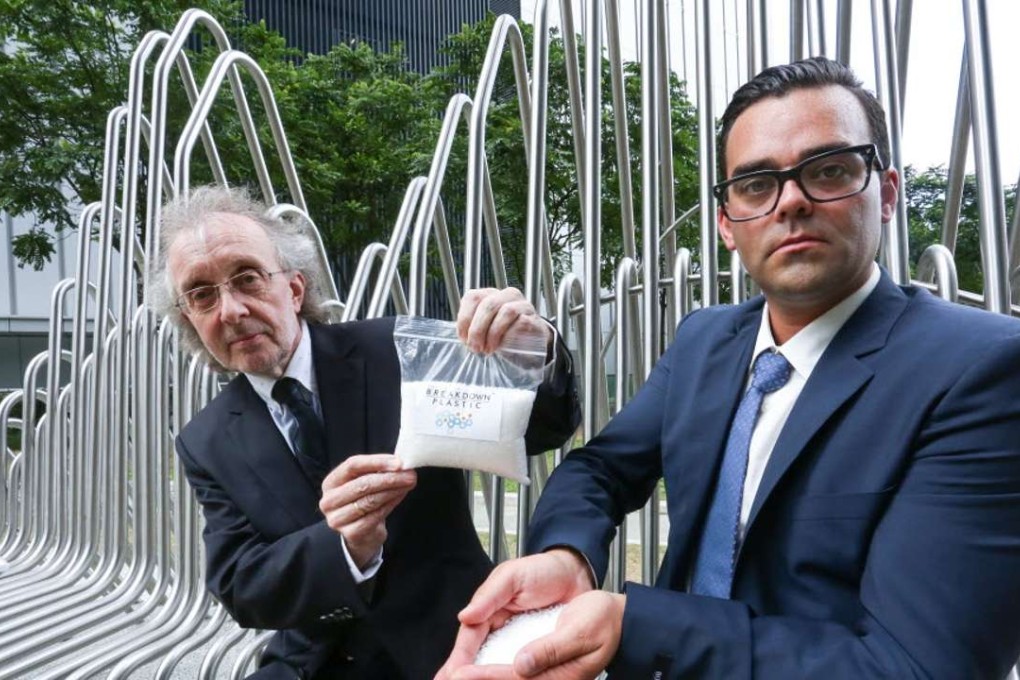New technology could help break down city’s plastic problem
Investors say organic additive can dramatically cut biodegradation time

A group of entrepreneurs want to introduce an inexpensive but organic additive to the plastic used in Hong Kong which they claim will slash the time it takes for the waste to biodegrade in landfills.
And café chain Pacific Coffee may be their first major client.
About a fifth of all Hong Kong’s municipal solid waste sent to landfill is plastic, the second biggest portion after food. Most of it is disposable cutlery, packaging, toys, bags and bottles.
“Almost every week I read about problems about [Hong Kong] landfills overflowing,” said Ryan Jesse, co-founder of Vancouver-based Breakdown Plastic. “The reality is plastic is supposed to be recycled. But it’s not working.”
The three entrepreneurs behind the Breakdown Plastic hope their product will solve a major headache for the city, in the shrinking amount of space in landfills.